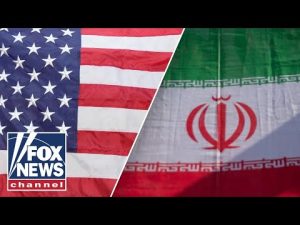In recent discussions about the current state of American values, the focus has increasingly turned to the notion of “wokeness” and how it contrasts with the conservative values that many believe serve as the backbone of the nation. The argument put forth by numerous conservatives is that the rise of woke culture has led to a disconnect between common sense and governance, making it vital to address these issues head-on. As the 2024 presidential election approaches, the question remains: Can Donald Trump halt this cultural decline and reinstate more traditional values?
First, it is crucial to understand what “wokeness” entails. At its core, it promotes the idea that disparities in society—whether in employment, education, or social standing—stem from systemic discrimination. This philosophy has taken root not just in grassroots movements, but also in governmental policies. The current administration has embraced these ideals, leading to events where simple truths—like boys being boys and girls being girls—have been branded as controversial. This stark shift has left many Americans scratching their heads, not to mention some conservatives feeling that their views are being silenced.
As the American populace grows weary of these radical interpretations of fairness and equity, it becomes clearer why Trump’s stand against policies promoting diversity, equity, and inclusion resonates with many. His former presidency saw robust economic growth, and a strong economy often empowers individuals to speak up against cultural issues that they deem troubling. If the economy stays on the upswing, the backlash against wokeness could strengthen—leading to a revival of more traditional values that celebrate individual merit and hard work rather than group identity.
However, the threat of a left-leaning populism looms large. Should the economy falter, there’s a genuine concern that the entrenchment of woke culture might resurface more forcefully, as it often finds fertile ground among those who are struggling. Such a scenario could pave the way for policies that further entrench divisiveness under the guise of equity. The irony here is that the very policies aimed at addressing disparities could end up perpetuating them, rather than bridging the gaps they claim to fix.
In light of these challenges, Trump’s approach will need to be strategic and bold. Instead of merely pushing back against wokeness, it may be beneficial for him to present a more aspirational vision for the country—one that intertwines economic success with a return to cultural integrity. The message should be clear: America thrives when individuals are recognized for their capabilities and contributions, not as mere representatives of demographic groups. A focus on unity through shared values might not only resonate with disillusioned voters but could also foster a sense of belonging that transcends current divisions.
As the political landscape shifts, conservatives must be vigilant. A resurgence of Trump-like leadership that emphasizes traditional values could steer America back on a path that prioritizes personal responsibility and unity. The stakes are high, and the outlook hinges on the ability to navigate the murky waters of modern discourse. A strong economy may provide the foundation for this fight, but the battle for America’s cultural soul will require nothing less than resolute leadership and unwavering commitment to the principles that made the nation great. For those watching closely, the outcome may just determine the direction of the country for generations to come.







